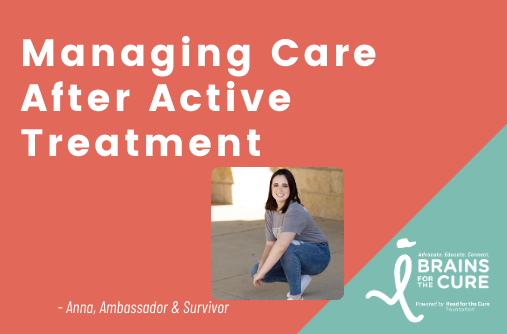Caregiver Questionnaire
JPH Guide
M: Appointment Expectations
Medical
Medical - Management
What to Expect From Your Follow-up Appointment
Follow-up care is a major part of the brain tumor treatment path. The journey for people diagnosed with a brain tumor does not end when active treatment has finished. Your health care team will continue to check that the tumor has not come back, manage any side effects, and monitor your overall health. This is called follow-up care. After treatment, expect routine physical exams, tests, and MRI scans to monitor your recovery. Due to the potential for tumor recurrence, the frequency of follow-ups will be tailored to your specific case.
Read More


